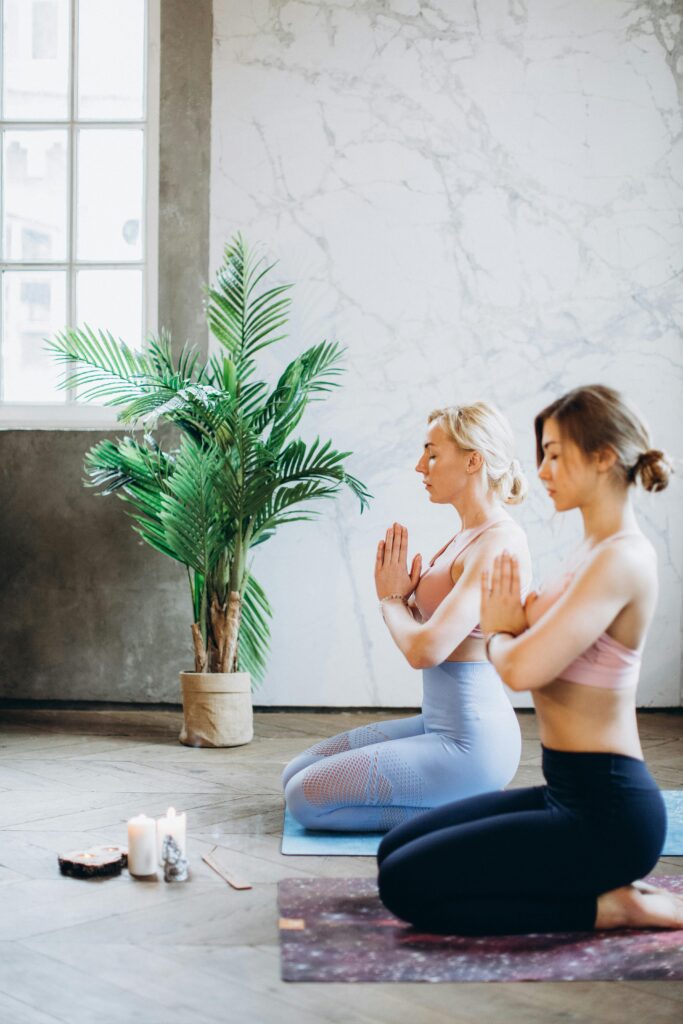Yoga is a practice that has gained popularity around the world in recent years. It has many health benefits and can be adapted for almost everyone. Before you take a class, tell your instructor about any health issues that may impact your ability to participate. It will help them recommend poses that will not aggravate your condition.
Improved Flexibility
Whether you’re new to yoga or have been practicing for years, you can see improvements in your flexibility with regular classes. It is because, despite its initial goal of enlightenment, the practice still incorporates physical postures or poses that tone muscles while increasing blood flow and relieving tension. Many people lose flexibility over time due to aging, stress, and sedentary lifestyles. Boosting your flexibility with yoga can help you regain range of motion and improve the function of your joints. To begin seeing your benefits, choose a class with a skilled instructor. A qualified instructor from Fitness Evolution can help you avoid injuries by modifying poses to suit your body’s limitations. Also, ensure you can relax during the session by turning off your phone and following class etiquette. It includes lowering your voice, removing your shoes and refraining from idle chit-chat.
Stress Relief
Yoga is a powerful tool for overcoming stress and anxiety. A 2023 study found that practicing yoga lowered cortisol levels, the stress hormone, improved sleep and mood, and strengthened the immune system. Yoga can also help relieve physical symptoms of stress, like soreness and tightness. Yoga has been shown to reduce tension by toning the muscles and increasing blood circulation. Yoga practice can calm the mind through meditation and breathwork.
In addition, yogic breathing activates the body’s parasympathetic nervous system, which helps to relax and release any built-up stress. Even if you can’t make it to your mat, try doing simple deep breathing exercises throughout the day to decompress. Practicing yoga with yoga classes in Bellingham can teach you to notice when you are feeling stressed and tense and help you learn to manage these emotions more effectively.https://www.google.com/maps/embed?pb=!1m14!1m8!1m3!1d10521.539402737459!2d-122.4548402!3d48.7554465!3m2!1i1024!2i768!4f13.1!3m3!1m2!1s0x0%3A0xca739abf1a660141!2sFitness%20Evolution%20-%20Bellingham!5e0!3m2!1sen!2sus!4v1667412509876!5m2!1sen!2sus
Better Sleep
Regular yoga practice has been shown to improve sleep, particularly in those who struggle with insomnia. Yoga’s combination of meditative movements, physical exercise, stretching and breathing can help ease tension and relax the body before bedtime. The breathing exercises in yoga are especially helpful for sleep since they encourage you to exhale fully, which helps decrease stress levels and lower blood pressure. Try including a few minutes of relaxing yoga into your evening routine if you have difficulties falling or staying asleep. However, avoid positions like vinyasa and hot yoga that could race your heart. Instead, opt for low-impact practices like hatha yoga and yoga nidra (yogic sleep). Set aside a room only used for sleeping, turn off the TV and all electronics, and make your yoga session part of your nighttime ritual, getting into PJs, washing your face, reading or journaling, and taking your medications.
Better Mental Health
Yoga provides a safe space to explore your feelings and emotions, fostering emotional regulation. It enables you to better cope with life’s ups and downs, benefiting people who struggle with anxiety or depression. Research has shown that yoga can enhance mood, decrease perceived stress, and boost positive affect. In addition, one study found that a 10-week yoga program significantly reduced PTSD symptoms in women who suffered from the condition. Many therapists now encourage their clients to practice yoga to complement talk therapy and manage their mental health issues. Whether you prefer the more physically active style (yang) or the slower-paced relaxation (yin), there are countless benefits to be gained from regular yoga practice. However, listening to your body and starting at a comfortable pace is important. And always remember to relax and enjoy the journey!



